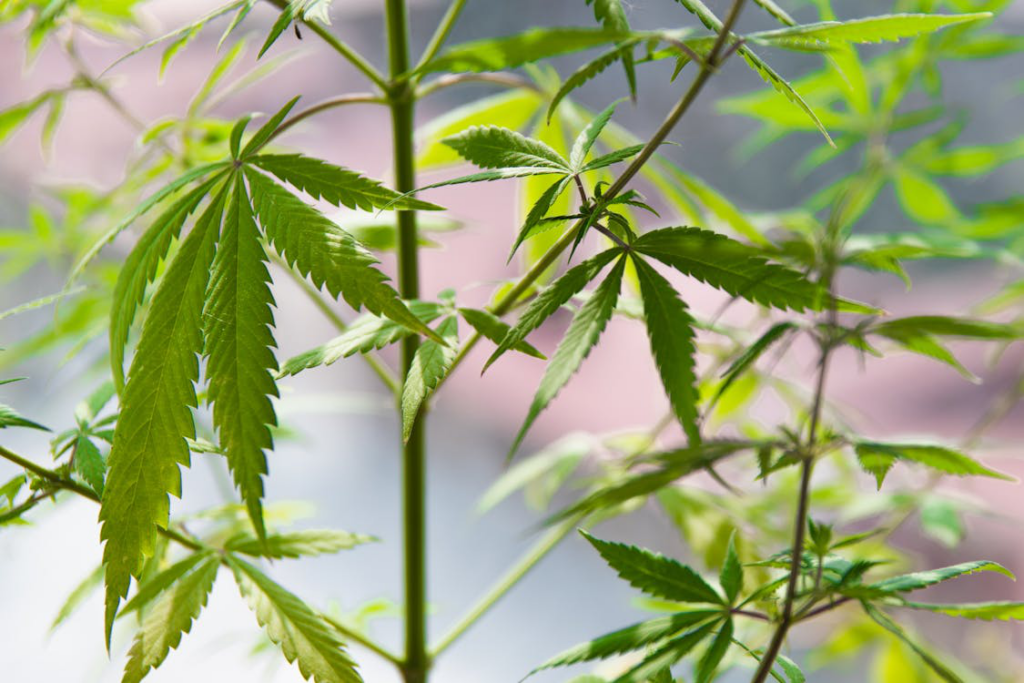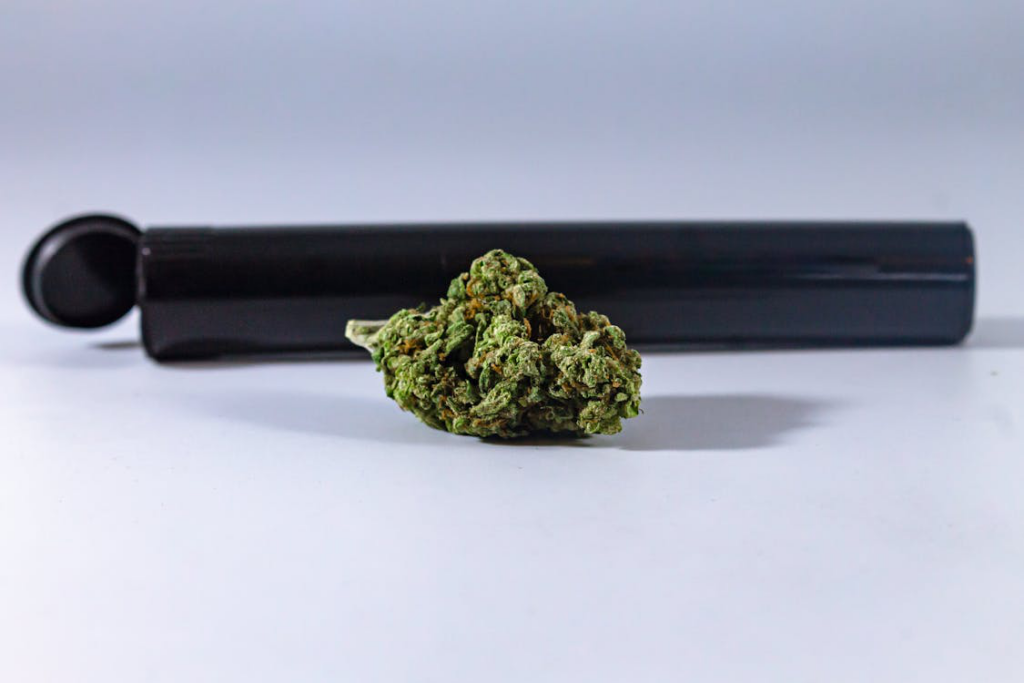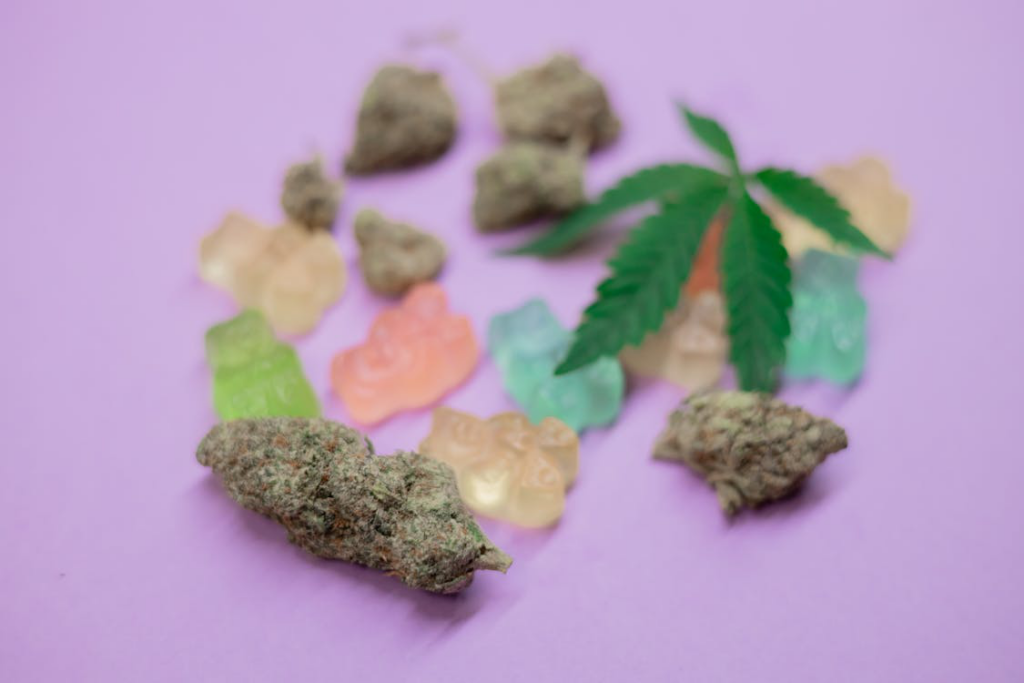The world of cannabis is constantly evolving, with new cannabinoids emerging and gaining popularity. Among these is hexahydrocannabinol (HHC), a lesser-known cannabinoid that has recently been generating buzz.
But how does HHC compare to its more famous cousin, delta-9-tetrahydrocannabinol (THC)?
This guide will take a deeper look into the differences between these two compounds, exploring their chemical structures, effects, legality, and potential risks.
Chemical Structure

Both HHC (hexahydrocannabinol) and delta-9 THC (tetrahydrocannabinol) are cannabinoids that play significant roles in influencing the body’s endocannabinoid system (ECS). The ECS is responsible for regulating essential physiological functions such as mood, sleep, appetite, immune response, and pain perception. While both cannabinoids interact with the ECS, their unique chemical structures result in distinct effects and potency.
Delta-9 THC
Delta-9 THC is the most well-known and extensively studied cannabinoid in cannabis.
Whether it’s the Grand Daddy Purple strain or the Super Sour Diesel, THC is the primary psychoactive compound that produces the “high” often associated with marijuana use.
Structurally, delta-9 THC contains a double bond in its cyclohexane ring. This double bond is important because it allows delta-9 THC to bind effectively with CB1 receptors located in the brain and central nervous system.
The binding of delta-9 THC to these receptors activates various pathways that contribute to the euphoric, relaxing, and sometimes intense effects that users experience. The strong binding affinity between delta-9 THC and CB1 receptors is why it is considered the most potent psychoactive cannabinoid in cannabis.
HHC (Hexahydrocannabinol)

HHC is a relatively newer cannabinoid in terms of research and consumer popularity. Structurally, HHC shares many similarities with delta-9 THC but has some critical differences that influence its effects. The most significant difference lies in the presence of two additional hydrogen atoms in HHC’s chemical structure, a change that leads to the absence of the double bond found in delta-9 THC’s cyclohexane ring. This absence of the double bond results in a distinct molecular shape and alters how HHC interacts with cannabinoid receptors.
Because HHC lacks the same double bond as delta-9 THC, it has a weaker affinity for CB1 receptors, meaning it does not bind as strongly to these receptors in the brain. As a result, HHC is often described as producing a less intense or potent psychoactive effect than delta-9 THC. Some users report that the high from HHC is more subtle, with effects that may be less euphoric but still include relaxation and mild stimulation.
Psychoactive Experience
While delta-9 THC, present in popular strains such as the Jamaican Chocolate Brooklyn, Live Resin Badder, or Gorilla Glue, is known for producing a stronger, more pronounced psychoactive experience, HHC is generally seen as a milder alternative. The binding differences between the two cannabinoids influence the subjective experience, with delta-9 THC often delivering more pronounced cognitive and sensory alterations, such as heightened perceptions and an intense “stoned” feeling. In contrast, HHC tends to provide a more balanced and less overwhelming experience, which some users find appealing for those seeking a lighter high.
Effects and Potency

While both HHC (hexahydrocannabinol) and delta-9 THC are psychoactive compounds derived from cannabis, there are notable differences in their effects and potency.
HHC, though chemically similar to THC, is often described as having milder and more relaxing effects. Many users report that HHC provides a balanced experience, falling somewhere between the effects of delta-8 THC and delta-9 THC. Anecdotal reports suggest that HHC induces a more subtle euphoric high with less intensity and a smoother onset, making it an appealing option for those seeking a more manageable cannabis experience. Many users also describe a heightened sense of relaxation and body sensation, with some noting that HHC may reduce feelings of anxiety or paranoia that can sometimes accompany stronger THC strains. However, since HHC is a relatively new compound, limited research means that the precise physiological and psychological effects are still not fully understood. Some commonly reported effects include mild euphoria, altered perception of time, slight body high, and a general sense of calm. Cognitive impairment, such as slowed thinking or memory lapses, is also reported, but to a lesser extent than with delta-9 THC.
On the other hand, delta-9 THC, the primary psychoactive compound in cannabis, is well-documented and known for its more potent and immediate effects.
Delta-9 THC in Blue Dream and Northern Lights induces a wide range of effects, including euphoria, deep relaxation, and heightened sensory perception. These effects are often accompanied by increased appetite (famously known as the “munchies”), and in some cases, increased creativity or a shift in thought patterns.
The intensity of delta-9 THC’s effects can vary significantly depending on several factors, including dosage, the individual’s tolerance, the consumption method (smoking, edibles, tinctures, etc.), and the strain of cannabis used.
Ultimately, while both HHC and delta-9 THC share some similarities, their effects differ in terms of intensity, duration, and overall experience.
HHC may provide a gentler, more controlled high, while delta-9 THC offers a stronger, more pronounced psychoactive effect.
Potential Risks and Side Effects
Limited research on HHC makes it challenging to definitively assess its potential risks and side effects.
However, given its similarity to THC, it’s plausible that HHC may share some common side effects, including:
- Anxiety and paranoia
- Dry mouth
- Red eyes
- Increased heart rate
- Impaired memory and coordination
- Dizziness
Long-term effects of HHC remain unknown, and further research is needed to understand its potential impact on health.
HHC is an emerging cannabinoid that presents an intriguing alternative to delta-9 THC. Its potentially milder psychoactive effects and legal ambiguity have contributed to its rising popularity. However, the lack of comprehensive research underscores the need for caution. It is crucial to be aware of the potential risks and uncertainties associated with HHC use.
As with any substance, responsible use and awareness are essential. Always start with low doses, especially when trying a new cannabinoid like HHC, and be mindful of its potential effects. If you have any concerns about using HHC or Delta 9 THC, consult a healthcare professional.
Ready to buy top-quality edible digital weed art? Don’t miss out on the collection at ERB-HUB.com!
We offer a wide collection of high-quality digital weed art, including Gorilla Glue digital art, Silver Haze art, Jamaican Chocolate Brooklyn digital art, Skywalker OG digital weed art, Grand Daddy Purple art, and much more.
Reach out to us at any time to place your orders!







